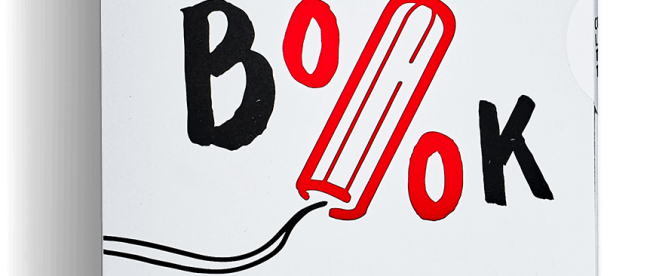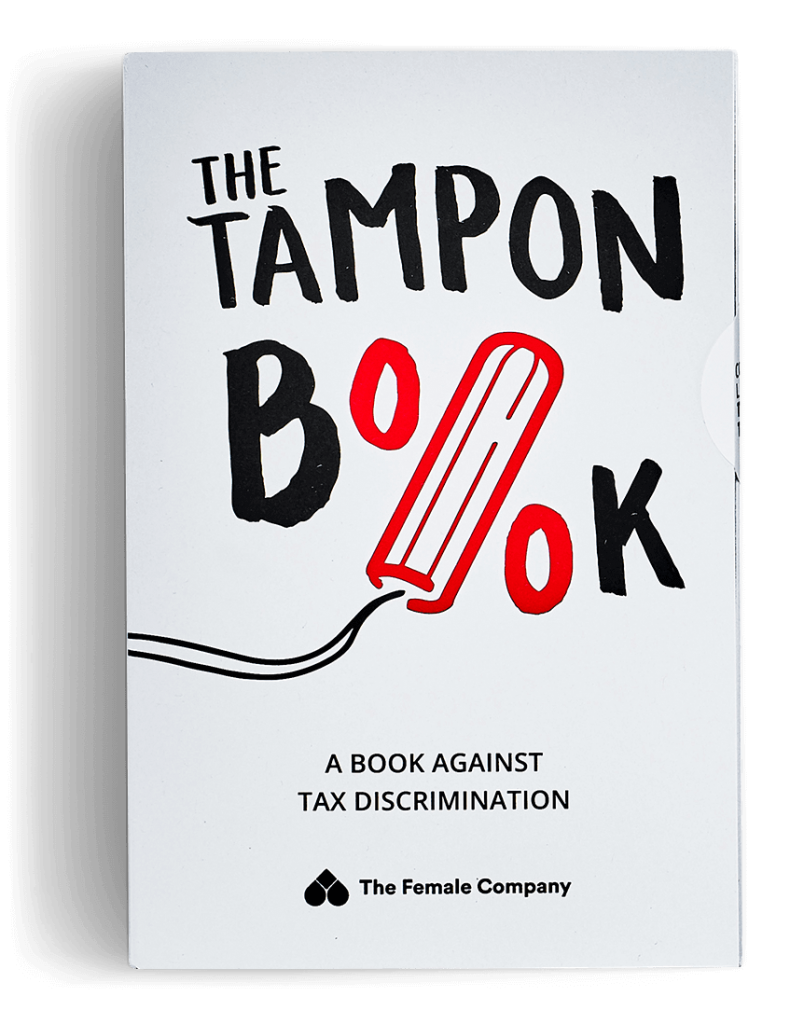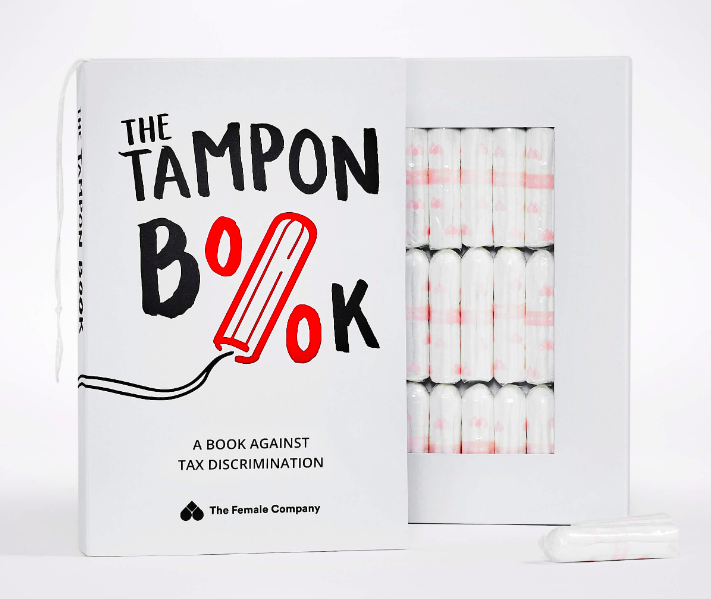The Tampons That Fought Back By Adding a Spine

When you think of luxury goods, you probably think of things like designer handbags, jewelry, maybe even wine. You probably don’t think of basic hygiene products like toilet paper, tissues, or toothpaste, as luxury goods, and for good reason: they’re not luxury goods. But what about tampons? They’re clearly in that latter category, right?
Well, not always. In Germany, for example, goods are subject to a sales tax of 19%, but basic items are taxed at a much lower rate of 7% — or, at least, that’s how the law is supposed to work. Over time, the list of products that are taxed at this lower rate has grown and grown; as Deutsche Welle reported, the list includes hardly-necessary items such as cut flowers and pet goldfish. But guess what’s still taxed at 19%? Yep: per Deutsche Welle, if you were buying “tampons, pads, menstrual cups, and other [similar] products” as recently as last December, it came with a 19% surcharge on your receipt.
If you think that’s ridiculous, you’re not alone. Over the past few years, nearly 200,000 people signed a petition asking for the lower tax rate. And last year, a group of activists wrote a book (below) about the issue. Kind of.

This book, though, isn’t meant to be read. Sure, reports the Guardian, “the book contains stories about menstruation from biblical times to the current era.” But you won’t find many other words inside. You’ll find something else.
Let’s take a closer look.

It’s filled with tampons.
If that also seems like a ridiculous idea, you’re right — until you realize that in Germany, books are taxed at 7%. If you buy your tampons this way, in theory at least, you’ll pay a much lower tax rate. And yes, the product — containing 15 tampons — was competitively priced, at about the equivalent of $4, including the tax.
For the co-creators Ann-Sophie Claus and Sinja Stadelmaier, the goal was bigger than the book. The petition, which at the time numbered 170,000 signatures, did not cause the law to change; Claus and Stadelmaier hoped the book would. They sent a copy to 100 members of the Bundestag (the German federal parliament) and pushed out a PR campaign to back the stunt. The books sold out quickly; according to Vogue, “the first print run of The Tampon Book sold out within two days, and the second within a week.”
As for the law? Claus and Stadelmaier succeded there, too. As of January 1, 2020, in Germany, tampons and similar items are taxed at 7%.
Bonus fact: In 1983, astronaut Sally Ride became the first U.S. woman to travel into space. Her voyage went off without a hitch, but getting there proved difficult for the engineers on her prep team — in large part because they apparently didn’t know much about women. Popular Science explains: “Engineers needed to figure out how many tampons she would need for a one-week mission. ‘Is 100 the right number?’ they asked her. ‘No. That would not be the right number,’ she replied. The engineers explained they wanted to be safe, and she assured them that they could cut that number in half without a problem.”
From the Archives: Taxed Cuts: The odd world of bagel taxes.
